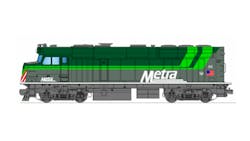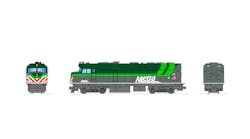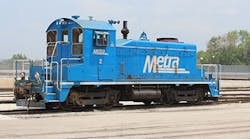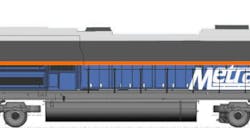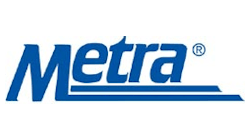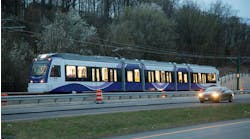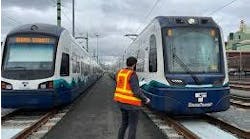A first-of-its-kind plan to convert older Metra locomotives into battery-powered ones has been approved by the Metra Board of Directors.
The commuter railroad that serves the Chicago area first issued a Request for Proposals (RFP) in April 2021 pushing the industry to create a zero-emission locomotive by converting an older engine from diesel power to battery power.
At the time the RFP was issued, Metra CEO and Executive Director Jim Derwinski said the “proposal could be game-changing.” The plan includes a $34.6 million contract with Progress Rail for a base order of three locomotives to be converted from diesel to battery power with options for three additional locomotives. The work will be performed in Patterson, Ga., and the base order is expected to be completed in 3.5 years.
“This procurement puts Metra on the cutting edge of battery-powered technology and demonstrates our commitment to innovation and cleaner energy,” said Derwinski. “If these locomotives prove themselves, they could play a significant role in our fleet and in our future and the concept could serve as a template for other railroads to follow.”
Metra will test the battery-powered locomotives on its Rock Island Line, which operates from downtown Chicago south and west to Joliet. Metra says the converted locomotives will have an estimated range of 150 miles with charging stations placed in the main yard and an outlying point. The exact location of the charging stations and duration of a full and partial recharge will not be known until the locomotives are designed.
The zero-emission locomotives will be fully compatible with Metra’s existing railcars and diesel locomotives and must be capable of providing a safe and comfortable ride at all speeds up to the maximum speed of 79 mph. The batteries must also power onboard systems, such as lighting, intercoms and HVAC. The locomotives may be painted in a green version of Metra’s paint scheme (per the conceptual illustrations) to indicate the green technology.
Metra says it will reduce its emissions footprint and improve air quality for riders in the Chicago region by replacing diesel power with battery power. In addition, the battery-powered locomotives are expected to be less noisy and have lower operating costs and lower maintenance costs than diesel locomotives.

Mischa Wanek-Libman | Group Editorial Director
Mischa Wanek-Libman is director of communications with Transdev North America. She has more than 20 years of experience working in the transportation industry covering construction projects, engineering challenges, transit and rail operations and best practices.
Wanek-Libman has held top editorial positions at freight rail and public transportation business-to-business publications including as editor-in-chief and editorial director of Mass Transit from 2018-2024. She has been recognized for editorial excellence through her individual work, as well as for collaborative content.
She is an active member of the American Public Transportation Association's Marketing and Communications Committee and served 14 years as a Board Observer on the National Railroad Construction and Maintenance Association (NRC) Board of Directors.
She is a graduate of Drake University in Des Moines, Iowa, where she earned a Bachelor of Arts degree in Journalism and Mass Communication.
